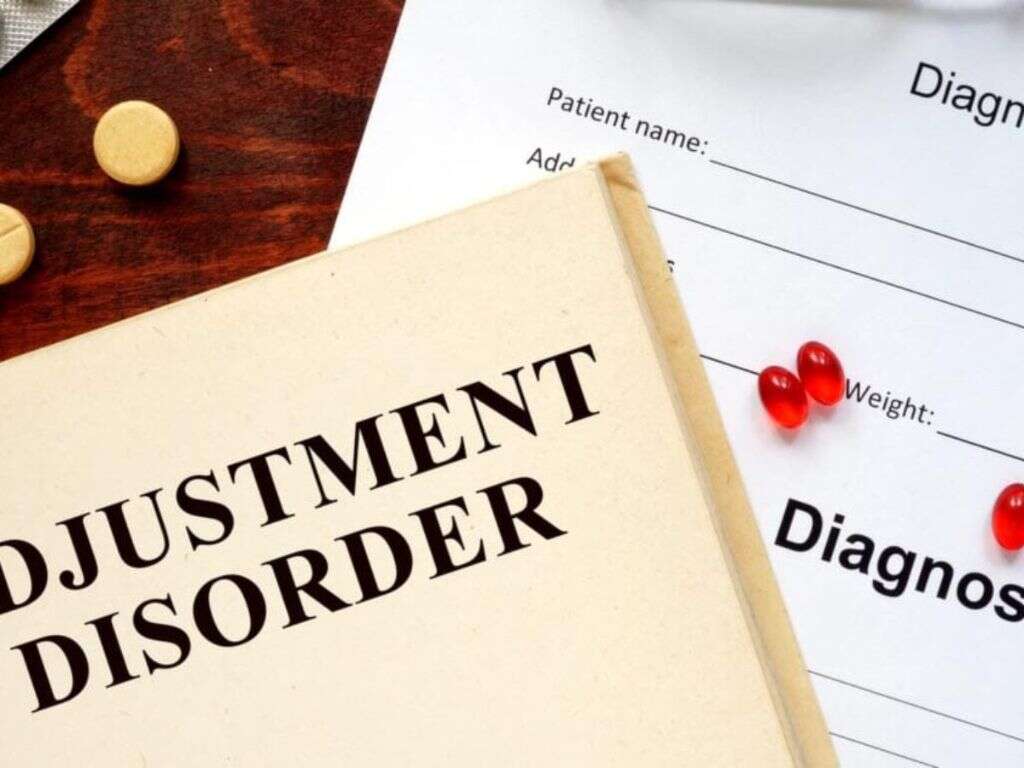What Is Adjustment Disorder?
Adjustment disorder comes with many symptoms and treatment options. It affects primarily individuals who have gone through a stressful or uncertain life event. Find out more about common symptoms, causes and treatment options for you or a loved one who may be struggling with this disorder. Compare this disorder with other mental health issues to find out how you can receive hope and healing for you or a loved one. Don’t let a loved one suffer alone with this disorder, but begin a journey of diagnosis and treatment.
Some mental health professionals now refer to this disorder as stress response syndrome. It is also known informally as situational depression. Many of the related emotions, behaviors and treatment options are similar. The type of life event and the adjustment strategies can affect the seriousness and severity of the difficulty of this disorder. Explore how coping skills and other strategies can reduce the risk of this disorder.
1. What Is Adjustment Disorder?
Compared to clinical major depression, adjustment disorder may not present as severe physical symptoms. While suicidal thinking and self-harm can still be a part of this disorder, it’s not as common as in other depressive disorders. It can be difficult at first to distinguish the difference between the two or between normal coping strategies and adjustment disorder.
For many individuals, symptoms start within three months of a particularly stressful or traumatic life event and end within six months of the event. Longer periods can be a sign of another disorder or difficulty, such as post-traumatic stress disorder or clinical depression. It can be difficult to determine whether an individual has this disorder at first glance, so it’s important to seek professional mental health assistance if you believe you or a loved one is suffering from adjustment disorder.
2. Who Does It Affect?
Both children and adults can be affected by this disorder. Most affected individuals have recently gone through a stressful event, as explained in the causes. It can affect individuals in different ways, just like normal coping methods surrounding a tragedy can vary. A mental health expert can review a case and determine if an individual is experiencing abnormal amounts of stress or sadness surrounding a tragedy. Typically, diagnosis relies on not only the severity of symptoms but how they affect a person’s daily work and life.
Adjustment disorder also affects family members and friends. It’s difficult to watch an individual struggle to cope with a major life event, so family and friends may also experience additional stress. Be sure that others affected also receive the care they need to find constructive coping methods. Learn more about the causes and symptoms and discover how professional mental health assistance can provide the necessary short-term treatment for this disorder.

3. What Are the Common Causes?
There is a wide range of causes that can lead to this disorder. Common stressors include the death of a loved one or a loved one falling ill. Individuals can feel helpless as they watch someone close to them struggle through an illness. Divorce or other relational problems can also trigger adjustment disorder. Other life issues are also common causes, such as money issues or worries, moving to a new home or other general life changes.
Teenagers and young adults can also experience this disorder. All the common causes relate to teenagers, along with family conflicts, problems at school or issues related to sexuality. A common feature of these causes is an inability to find constructive coping methods. Some individuals lack productive ways to deal with stress, while others only experience these difficulties at the onset of adjustment disorder.
4. What Symptoms Are Related to Adjustment Disorder?
Look for a range of symptoms related to anxiety, depression and difficulties dealing with stress. Many of the symptoms of adjustment disorder are extreme versions of typical responses to stressful life situations. Look for signs of hopeless feelings, social withdrawal, crying or other feelings of depression. Anxious signs include twitching, trembling, or acting tense or nervous. For some individuals, acts of defiance and impulsive behaviors can be linked to this disorder.
These symptoms range dramatically in severity. Not all individuals experience every symptom, so look any one of these symptoms that is severe enough to affect a person’s work or social life. Most symptoms are emotional, though some individuals report feelings of skipping heartbeats and other physical issues.

5. Are There Required Symptoms for Diagnosis?
All of these symptoms are related to the usual stress responses, particularly after a serious tragedy. In order to be considered an adjustment disorder, these symptoms need to occur within three months of a major stressor. They also need to affect a person’s quality of life and be more severe than expected. Some symptoms seem inappropriate or out of character for a person who recently experienced a death, divorce or other loss. These can include aggression and risky behaviors or extreme sadness, anxiety or other symptoms.
Some individuals with adjustment disorder make a suicide attempt or have thoughts of suicide. Before a diagnosis is given, a therapist or other mental health professional must first determine that no other disorder is present. Someone you know may be dealing with clinical depression or post-traumatic stress disorder rather than adjustment disorder.
6. How Is It Diagnosed?
Review the common signs that a mental health professional looks for before giving a diagnosis. Typically, an individual with adjustment disorder experiences symptoms within a set time period of a stressful event. It’s rare for symptoms to only present long after a tragedy. Another disorder may be diagnosed if symptoms don’t improve within six months.
Symptoms must usually be more extreme than expected for a particular tragedy. The loss of a loved one is normally associated with sadness and other stressful feelings, so the severity is also determined based on the individual and the life event. A diagnosis can offer relief for an individual and his or her family, as this is the first step toward a treatment option. Understanding the reason for extreme or unusual behaviors and thoughts can allow an individual to begin coping in a healthy, productive way.

7. What Are Treatment Options?
Most people who are diagnosed only need short-term treatment options. Symptoms usually diminish after six months, so individuals affected typically only need short-term treatment options. The goal of adjustment disorder treatment is to restore normal functioning and reduce stress and difficult emotions to a healthy, manageable level.
The most common treatment option is cognitive-behavioral therapy. This talk therapy helps create healthy habits and self-talk. Therapists work with individuals to recognize negative thoughts and find healthy alternatives to reduce symptoms and severity of symptoms. Long-term therapy, group therapy and family therapy all have shown promising results for assisting an individual and affected family members. If necessary, medication can also be prescribed for sleep issues, anxiety or depressed thoughts.
8. Are There Any Associated Risk Factors?
Individuals most at risk have gone through a traumatic life event in the past three months. Spend time with friends or family members who have gone through a traumatic event and consider recommending therapy if they exhibit extreme emotional or behavioral responses. Usual thoughts of sadness and slight social withdrawal may be normal signs of grieving, but extreme responses can lead to self-injury or other symptoms that affect the individual’s quality of life.
Other risk factors include childhood stressors and routine responses to unknown or stressful situations. Individuals who struggle to accept change and uncertainty in major life events are more likely to be affected by this disorder. Look for signs of frustration and a lack of coping skills in yourself or your loved ones. Consider seeking professional assistance in improving coping skills to reduce the risk of adjustment disorder.

9. What Are Possible Complications?
Most cases resolve within six months with or without therapy. However, it’s recommended that individuals receive therapy or other treatment options to prevent further complications. Typical complications include more serious and long-term mental health issues. These can include anxiety disorders, substance abuse or major depression.
Some complications arise from an inability to deal with stress in a healthy way. These include depression, post-traumatic stress disorder and anxiety disorders. Other complications can be the result of self-medication, such as substance abuse. Don’t let an individual suffer alone, but encourage anyone dealing with a difficult life experience to reach out for mental health assistance.
10. Is It Preventable?
There are no prevention strategies that are proven to be effective. Removing all major stressors and tragic life events would be an effective prevention strategy, but this is not possible. Instead, the best way to prevent adjustment disorder is to develop coping skills and resilience. These features dramatically decrease the risk of this disorder or related mental health issues.
Coping skills include social support, seeking meaningful activities and framing your emotions in a healthy way. Maintaining a positive outlook in the midst of a tragedy is a sign of resilience and effective coping skills. Work with a mental health expert or other professional to learn more about healthy coping strategies to increase your chance of preventing this disorder in yourself and those around you.











